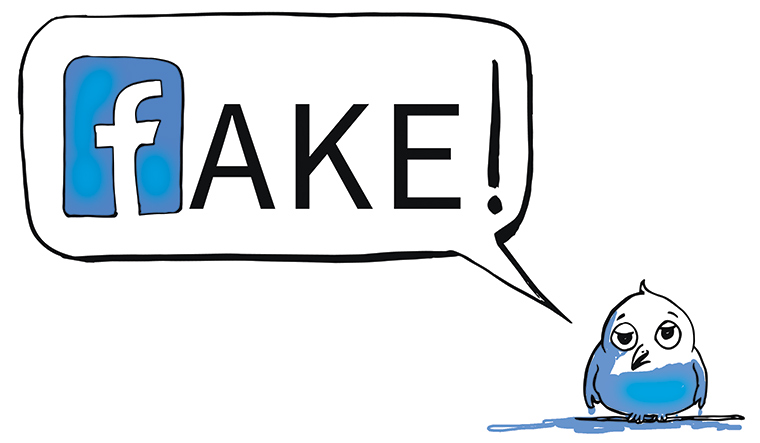
People draw a distinction between information sources that are dishonest and those that are biased, according to a study.
Researchers from the Ohio State University in the US found that a source seen as biased may lose credibility with people, even if they believe the source is scrupulously honest.
That means untruthful—or "fake"—news is not the only issue for consumers, researchers said.
"If you want to be seen as a credible source, you have to be objective, as well as honest and knowledgeable," said Laura Wallace, a postdoctoral researcher at The Ohio State University.
The findings, published in the journal Personality and Social Psychology Bulletin, are significant because most research has suggested that source credibility is a combination of trustworthiness and expertise, Wallace said.
Bias had not been considered, or was viewed as part of trustworthiness.
The researchers, including Duane Wegener and Richard Petty, both professors at Ohio State. conducted several related experiments.
In one study, 169 undergraduate students read a fictitious conversation between aid workers trying to decide how to allocate resources at the beginning of an Ebola outbreak in the Congo.
They had to decide whether to allocate limited resources to Rutu, a rural area where the outbreak started, or Poko, a nearby city where the disease had spread.
The aid workers were all described as "highly trained."
One worker, Roger, advocated for sending aid to Rutu and for some participants was described as having worked in that area as a Peace Corps volunteer, which might indicate that he is biased.
For other participants, this information was omitted, leaving no indication of bias.
After reading the conversation, participants completed a questionnaire in which they evaluated the aid workers' proposals.
Results showed that when Roger was described as having a previous connection to Rutu, participants thought Roger was biased in his recommendation to send aid to Rutu—even though they also thought he was trustworthy, an expert in the field, and likable.
The study participants thought his suggestion to send aid to Rutu was less credible, but only when they were told he had previously worked there.
"The guys in this scenario are all trying their best to contain this Ebola outbreak, they all know what they're doing, and they are all seen as very honest," Wallace said.
"But people believe that Roger's experience in one of these regions is affecting his judgment and that he just can't see things objectively," Wallace.
This result shows that bias may damage credibility, just as untrustworthiness does.
However, that doesn't mean that bias and untrustworthiness always have the same consequences.
"In the case of biased, but honest sources, the information they present might only support one side of the issue, but at least people can treat the information as useful for understanding that side," Wallace said.
In addition, the difference between a biased source and an untrustworthy source has a big impact if the source changes positions.
In a separate study that has not yet been published, the same researchers found that when untrustworthy sources change their position, it does not make them any more or less persuasive.
"Untrustworthy sources are seen as unpredictable. You can't tell what position they are going to take and it is not seen as meaning anything if they flip-flop," she said.
The study found that it was quite surprising when biased sources changed their positions on an issue. This surprise had a positive effect on persuasion.
"People believe there must be new evidence that is really compelling to get a biased source to change positions and take the opposite side," Wallace said.



No comments:
Post a Comment